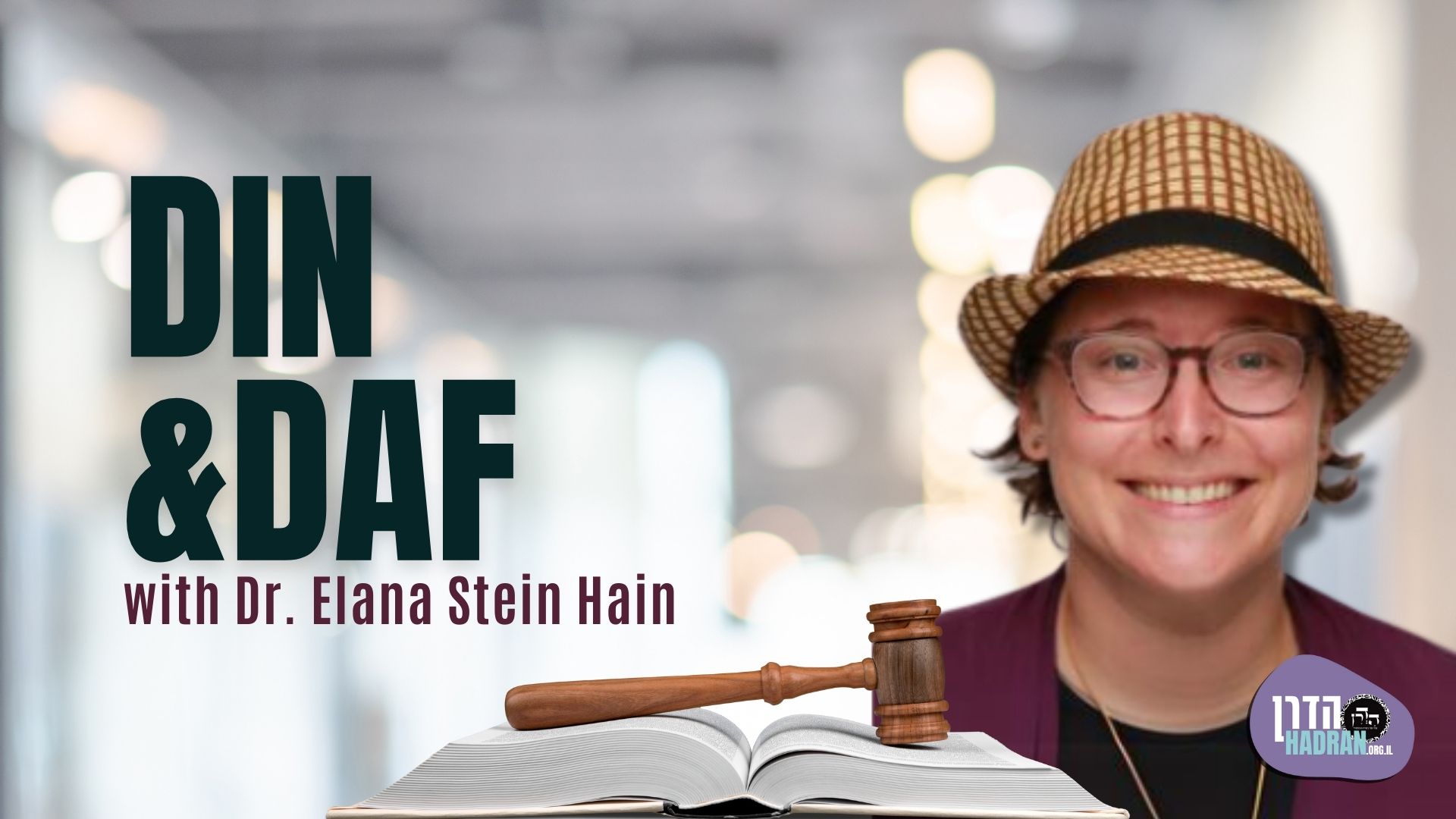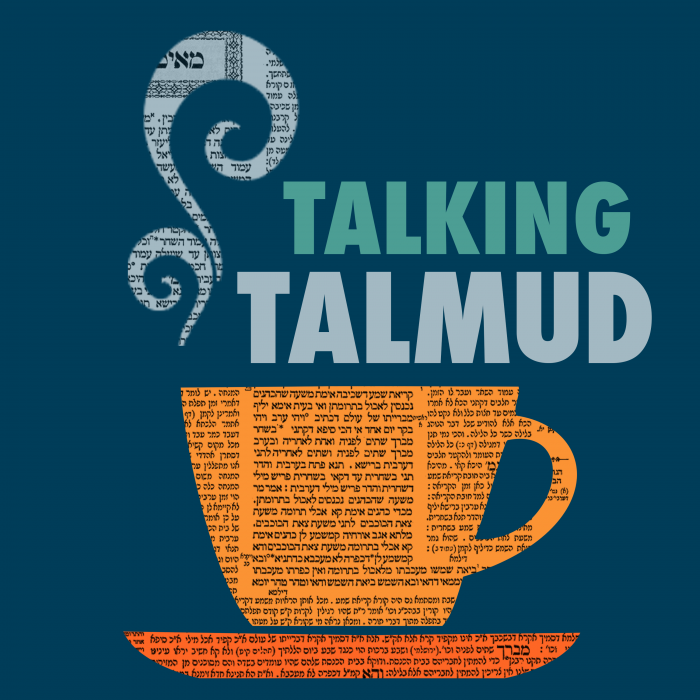Bava Batra 34
הֵיכִי נִידַיְּינוּהּ דַּיָּינֵי לְהַאי דִּינָא? לִישַׁלֵּם? לֵיכָּא תְּרֵי סָהֲדִי! לִיפְטְרֵיהּ? אִיכָּא חַד סָהֲדָא! לִישְׁתְּבַע, הָא אָמַר מִיחְטָף חַטְפַהּ, וְכֵיוָן דְּאָמַר דְּחַטְפַהּ – הָוֵה לֵיהּ כְּגַזְלָן!
How should judges judge for this judgment? There are reasons not to implement all potential rulings. If they were to order the one who snatched the metal to pay for it, that would not be the correct ruling, because there are not two witnesses who saw him snatch it, and the court does not force payment based on the testimony of one witness. If they were to accept his claim and exempt him entirely, that would not be the correct ruling, because there is one witness who testified against him. If they were to order him to take an oath, which is the usual response to counter the testimony of one witness, didn’t he say that he did in fact snatch it, and since he said that he snatched it and there is no proof that it is his, he is like a robber, and the court does not allow a robber to take an oath.
אֲמַר לְהוּ רַבִּי אַבָּא: הָוֵי מְחוּיָּב שְׁבוּעָה שֶׁאֵינוֹ יָכוֹל לִישָּׁבַע, וְכׇל הַמְחוּיָּב שְׁבוּעָה שֶׁאֵינוֹ יָכוֹל לִישָּׁבַע – מְשַׁלֵּם.
Rabbi Abba said to them: He is one who is liable to take an oath who is unable to take an oath, and anyone who is liable to take an oath who is unable to take an oath is liable to pay. The Rabbis who were studying before Abaye thought that the case of the witness to the years of profiting and Rabbi Abba’s case are similar, in that since the possessor is unable to take an oath to refute the witness, as he concedes that he profited from the land for those years, he should have to pay for his consumption of the produce.
אֲמַר לְהוּ אַבָּיֵי: מִי דָּמֵי?! הָתָם סָהֲדָא לְאוֹרוֹעֵי קָאָתֵי – כִּי אָתֵי אַחֲרִינָא בַּהֲדֵיהּ, מַפְּקִינַן לַהּ מִינֵּיהּ; הָכָא לְסַיּוֹעֵי קָא אָתֵי – כִּי אֲתָא אַחֲרִינָא, מוֹקְמִינַן לַהּ בִּידֵיהּ!
Abaye said to these Rabbis: Are these two cases comparable? There, in Rabbi Abba’s case, the witness is coming to undermine the position of the one who snatched the metal. This can be seen from the fact that when it would be the case that another witness comes to court and testifies with the first witness, we would take away the piece of metal from the one who snatched it. By contrast, here, in the case of the individual who brought one witness to attest to his profiting from the land, the witness is coming to support the possessor. This can be seen from the fact that when another witness would come to court and testify with the first witness, we would establish the land in his possession. Therefore, the testimony of the one witness does not render the one who profited from the land liable to take an oath.
אֶלָּא אִי דָּמְיָא הָא דְּרַבִּי אַבָּא – לְחַד סָהֲדָא וּלְתַרְתֵּי שְׁנֵי – וּלְפֵירֵי.
Rather, if this case of Rabbi Abba is comparable to a case such as this, it is comparable to a case where there is one witness and he testifies to someone’s profiting from land for two years, and the comparison is in terms of payment for the produce that he consumed. In terms of the consumption of the produce, two witnesses would have rendered the possessor liable to pay, as consumption of the produce for only two years does not establish the presumption of ownership. Therefore, one witness renders him liable to take an oath. Since he himself claimed that he profited from the land as the witness testified, he cannot take an oath to contest the testimony. Therefore, he would have to pay for the produce.
הָהוּא אַרְבָּא דַּהֲווֹ מִינְּצוּ עֲלַהּ בֵּי תְרֵי, הַאי אָמַר: ״דִּידִי הִיא״, וְהַאי אָמַר: ״דִּידִי הִיא״. אֲתָא חַד מִינַּיְיהוּ לְבֵי דִינָא, וְאָמַר: תִּיפְסוּהָ אַדְּמַיְיתֵינָא סָהֲדֵי דְּדִידִי הִיא. תָּפְסִינַן, אוֹ לָא תָּפְסִינַן? רַב הוּנָא אָמַר: תָּפְסִינַן. רַב יְהוּדָה אָמַר: לָא תָּפְסִינַן.
§ The Gemara relates: There was a certain boat that two people were quarreling about with regard to its ownership. This one said: It is mine, and that one also said: It is mine. One of them came to court and said: Seize it until I am able to bring witnesses that it is mine. The Gemara asks: In such a case, do we seize it or do we not seize it? Rav Huna said: We seize it. Rav Yehuda said: We do not seize it, as there is no cause for the court to intervene.
אֲזַל, וְלָא אַשְׁכַּח סָהֲדֵי. אֲמַר לְהוּ: אַפְּקוּהָ, וְכֹל דְּאַלִּים גָּבַר. מַפְּקִינַן, אוֹ לָא מַפְּקִינַן? רַב יְהוּדָה אָמַר: לָא מַפְּקִינַן. רַב פָּפָּא אָמַר: מַפְּקִינַן. וְהִלְכְתָא: לָא תָּפְסִינַן, וְהֵיכָא דִּתְפַס – לָא מַפְּקִינַן.
The court seized the boat. The one who requested of the court to seize it went to seek witnesses, but did not find witnesses. He then said to the court: Release the boat, and whoever is stronger prevails, as this is the ruling in a case where there is neither evidence nor presumptive ownership for either litigant. The Gemara asks: In such a case, do we release it or do we not release it? Rav Yehuda said: We do not release it. Rav Pappa said: We release it. The Gemara concludes: And the halakha is that we do not seize property in a case where ownership is uncertain, and where it was seized, we do not release it.
זֶה אוֹמֵר: ״שֶׁל אֲבוֹתַי״, וְזֶה אוֹמֵר: ״שֶׁל אֲבוֹתַי״ – אָמַר רַב נַחְמָן: כֹּל דְּאַלִּים גָּבַר. וּמַאי שְׁנָא מִשְּׁנֵי שְׁטָרוֹת הַיּוֹצְאִין בְּיוֹם אֶחָד –
There was an incident where two people dispute the ownership of property. This one says: It belonged to my ancestors and I inherited it from them, and that one says: It belonged to my ancestors and I inherited it from them. There was neither evidence nor presumptive ownership for either litigant. Rav Naḥman said: Whoever is stronger prevails. The Gemara asks: And in what way is this case different from the case where two people produce two deeds of sale or gift for the same field that are issued on one day,
























